UBA held the International Conference "Kyiv Arbitration Days: think big!"
On December 8, 2023 the Ukrainian Bar Association held the International Conference "Kyiv Arbitration Days: think big!" in an online format. Traditionally, this event brought together arbitration professionals who want to keep abreast of the latest trends in the arbitration community. The conference was supported by ENGARDE Attorneys at Law, with Asters and Covington & Burling LLP as partners of the event.
Irina Nazarova, Managing Partner at ENGARDE Attorneys at Law (Kyiv, Ukraine), and Lisa Richman, Partner at McDermott Will & Emery (Washington, DC), welcomed the audience.
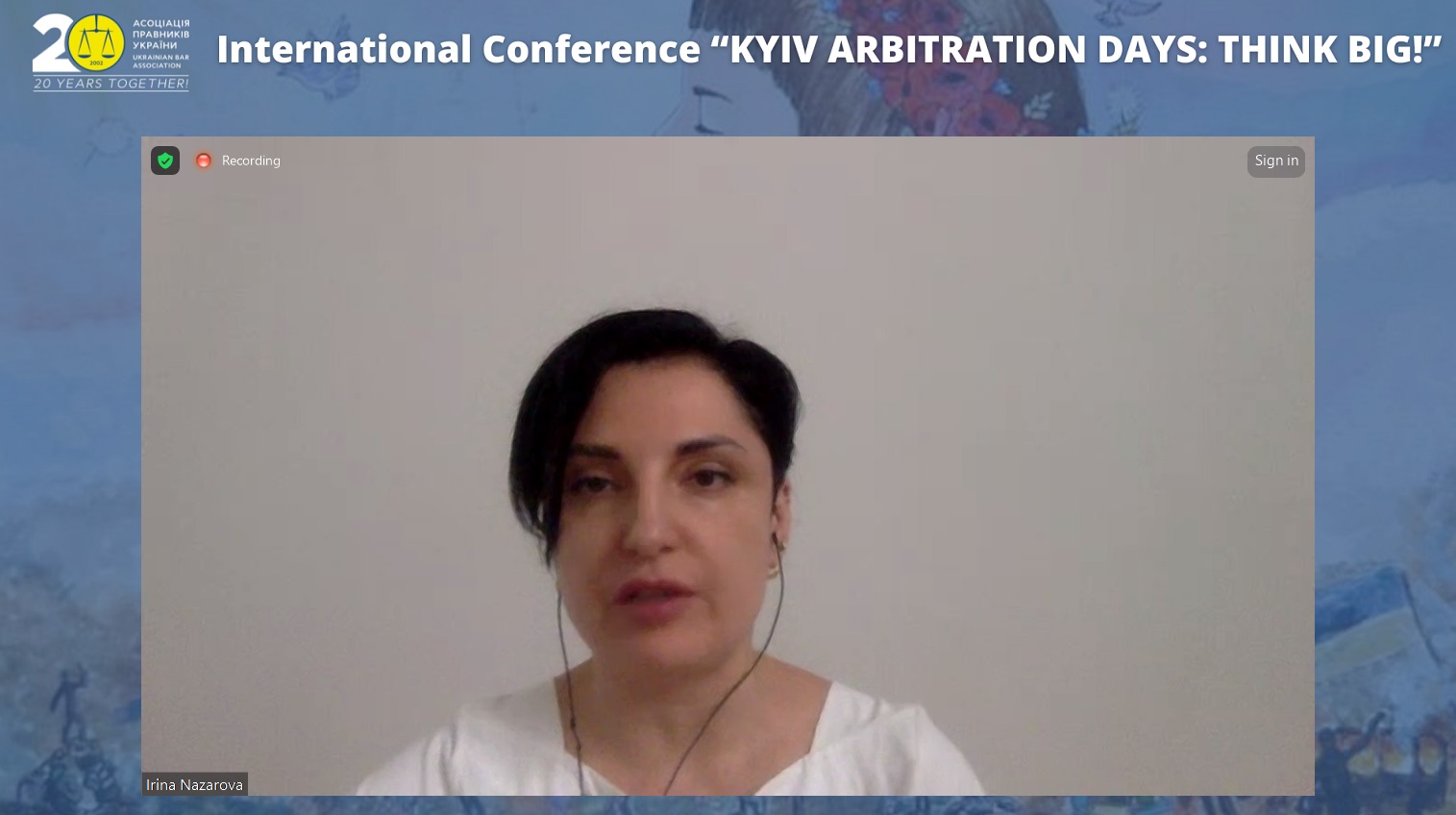
Irina Nazarova thanked the foreign colleagues who joined the event. She emphasized that for a number of reasons, including security, it was decided to hold the conference online this year. At the same time, according to Managing Partner of ENGARDE Attorneys at Law, it is gratifying that this year's number of participants is almost the same as before the war. Ms. Nazarova also expressed her gratitude to the partners and media partners of the event.
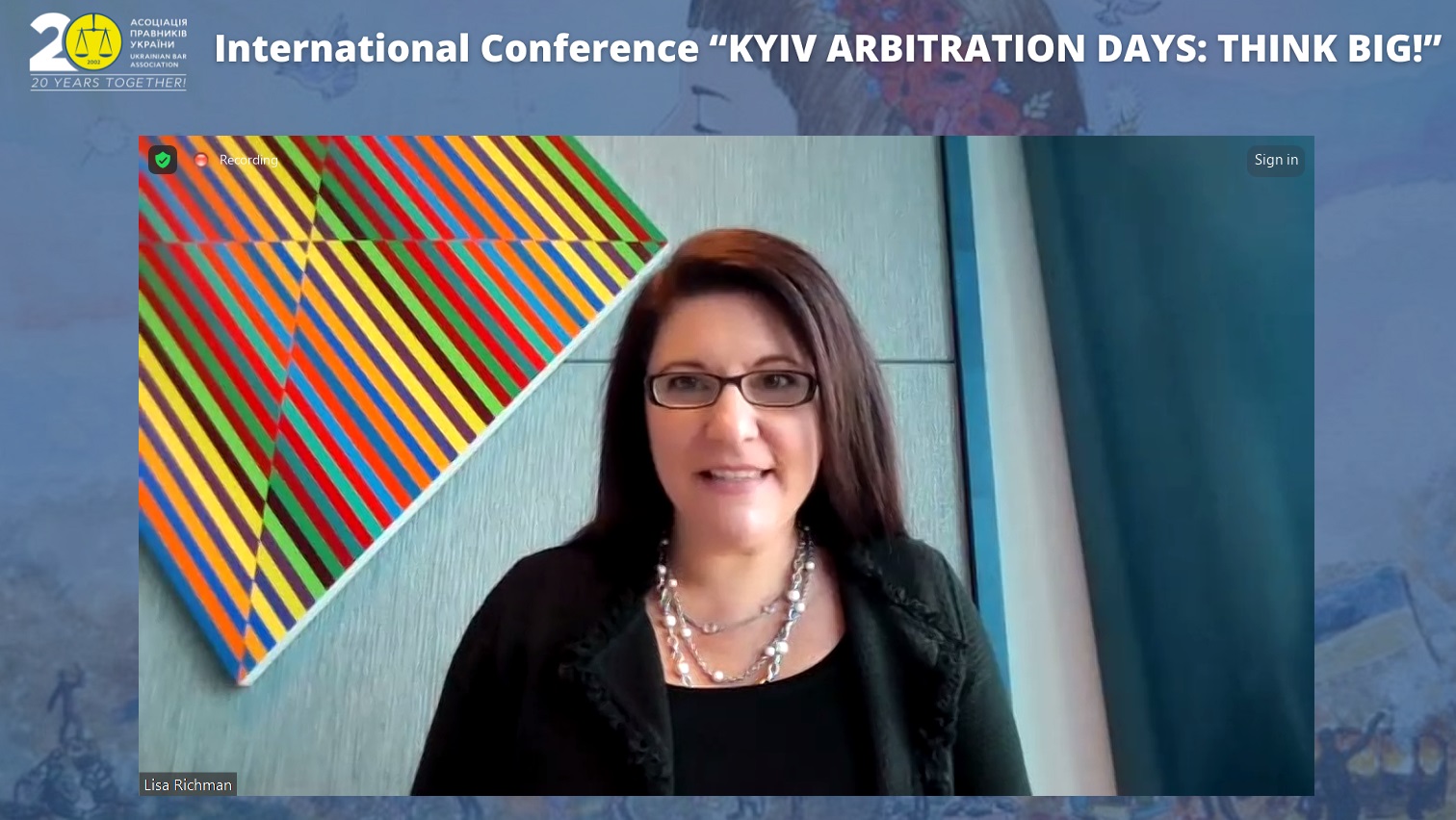
Lisa Richman emphasized the importance of the conference and expressed her admiration for the resilience of the Ukrainian people during the full-scale war.
The topic of the first session of the conference was "How to make the Russia pay?". The session was moderated by Charles Kotuby, Professor of Practice and the Executive Director of the Center for International Legal Education at the University of Pittsburgh School of Law (Washington DC, USA).
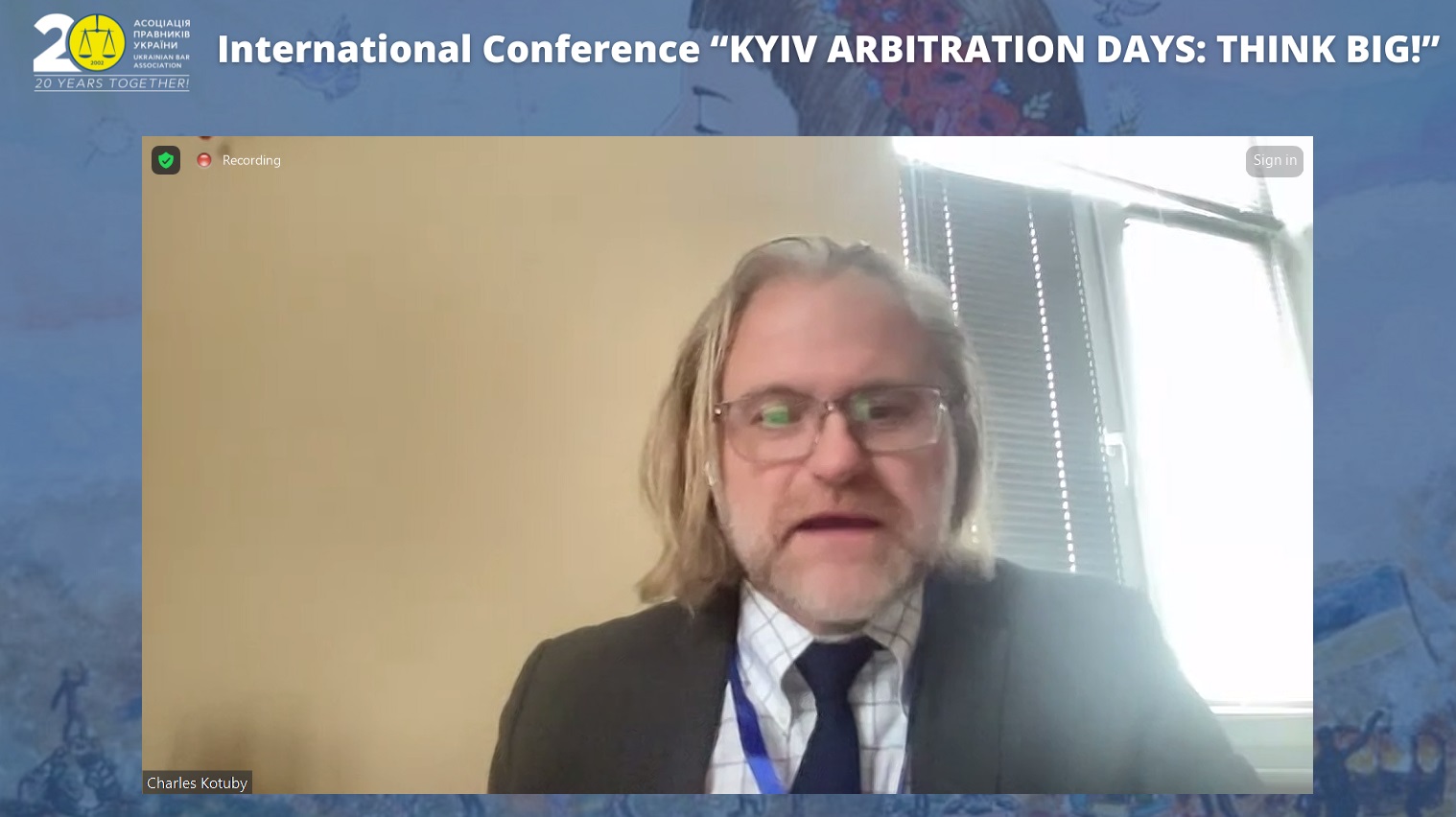
Patrick Pearsall, Director of the International Claims and Reparations Project at Columbia Law School (Washington DC, USA), spoke about the possible mechanism of compensation for the damage caused by Russia to Ukraine as a result of the full-scale invasion. In particular, the expert familiarized the audience with such elements of this mechanism as the Claims Commission, the International Reparations Fund and the Registry of Damages.
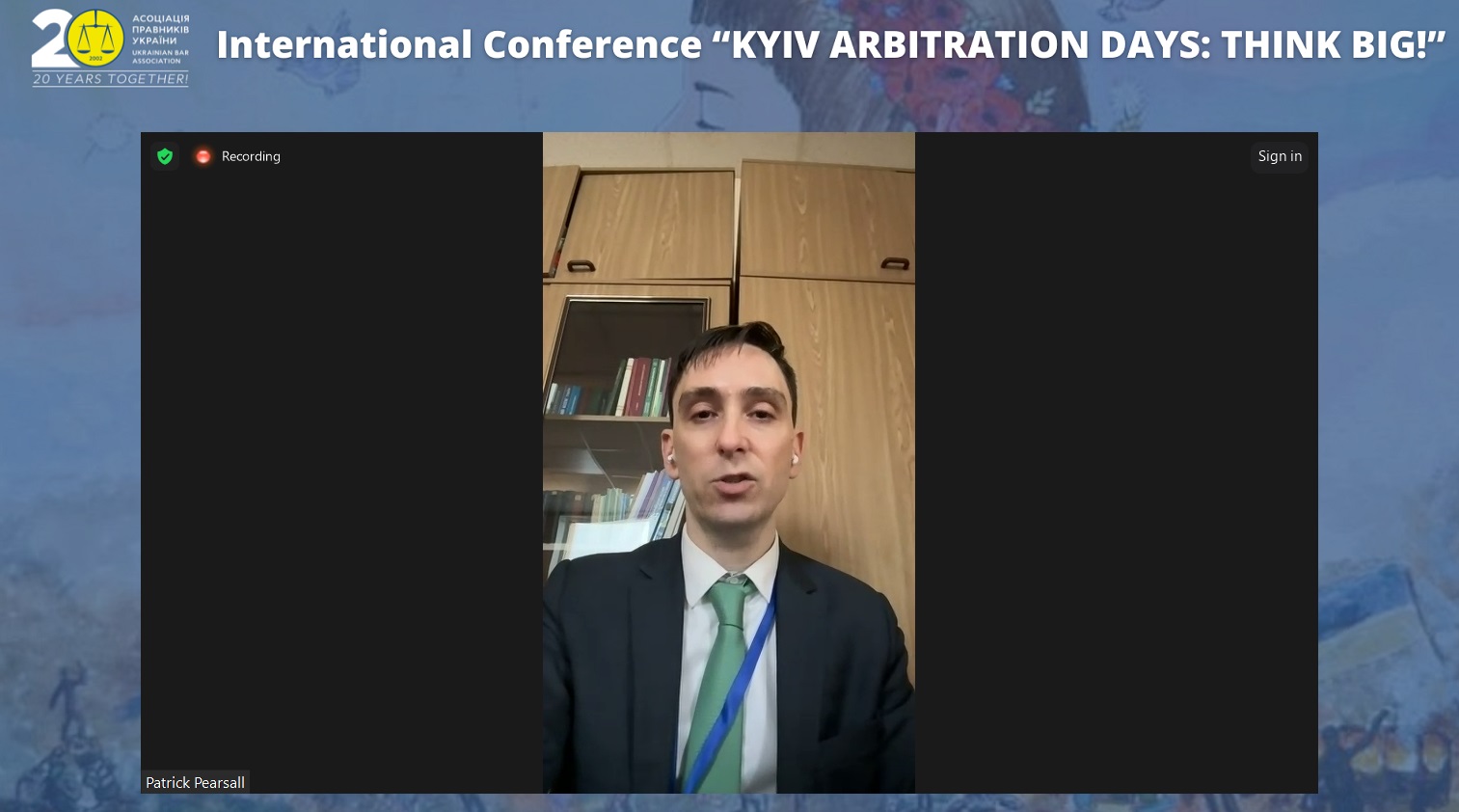
The speaker noted that the Claims Commission must have international recognition. Mr. Pearsall reminded that, according to the UN General Assembly resolution, after the end of the war, Russia will have to pay reparations to Ukraine, but the above-mentioned commission should be established for this purpose. The expert emphasized that this commission will consider claims from both the Ukrainian and Russian sides, as well as third parties (for example, international companies in Ukraine). The commission will also search for assets that can be used to compensate for damages.
Over the past decades, the most successful experience in solving the problem of compensation for damages by the aggressor is the settlement of the consequences of Iraq's invasion of Kuwait in the early 1990s, said Patrick Pearsall.
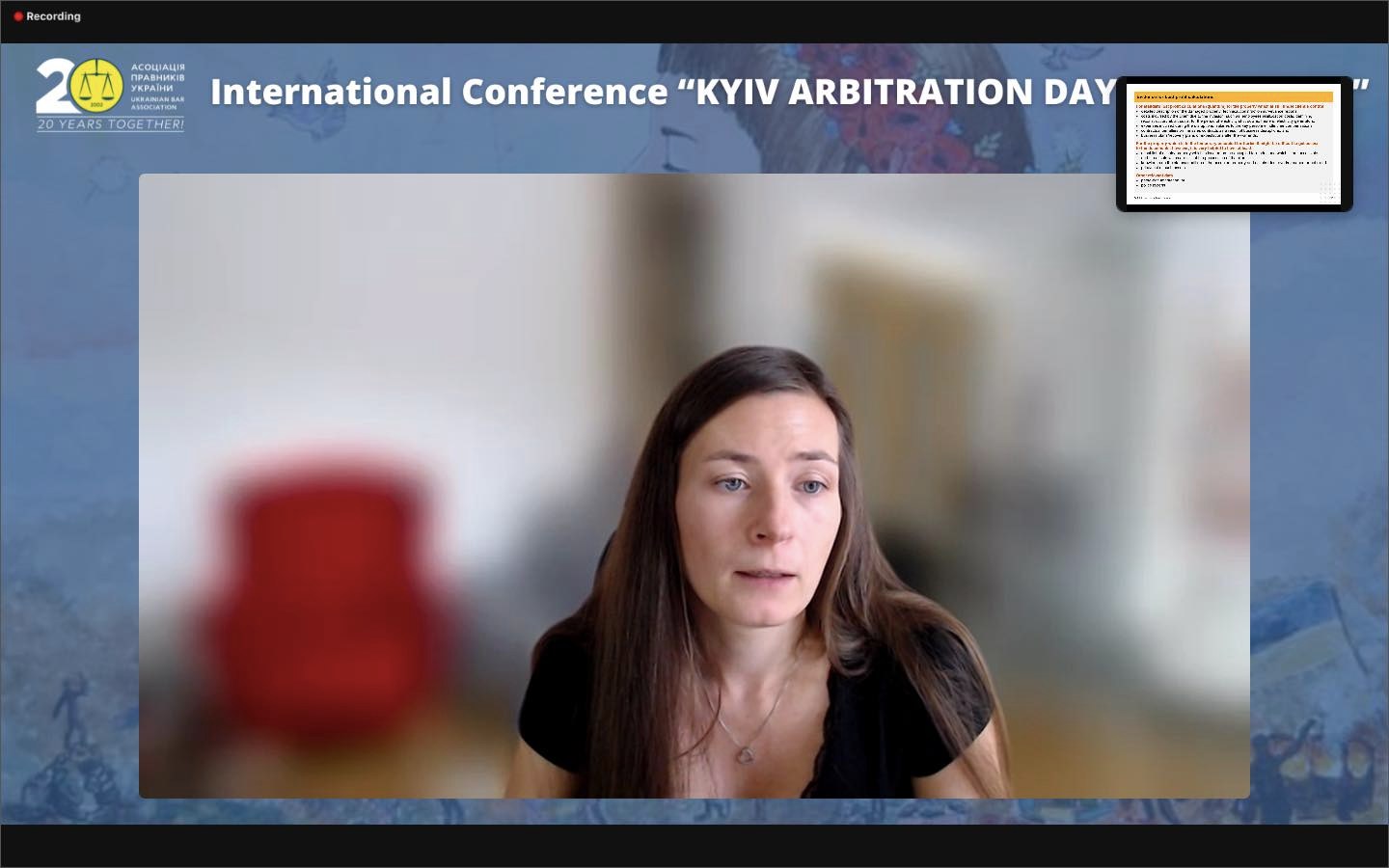
Kateřina Skryjova, Dispute Advisory Chief Operating Officer at PwC (Czech Republic) delivered a presentation on "Current issues of damages evaluation" (PRESENTATION). Based on the experience of previous cases, she suggested that the following types of damage claims will be common in Ukraine:
- individual claims for forced departure from Ukraine;
- claims for general (bodily injury, trauma, including psychological) and special damage (loss of earnings, pensions, etc.)
- claims for loss of profits due to the forced business interruption, and for business recovery costs;
- property claims (damage and destruction of commercial and residential real estate, state-owned enterprises and infrastructure);
- claims for environmental damage;
- claims by the state for the costs of evacuating citizens.
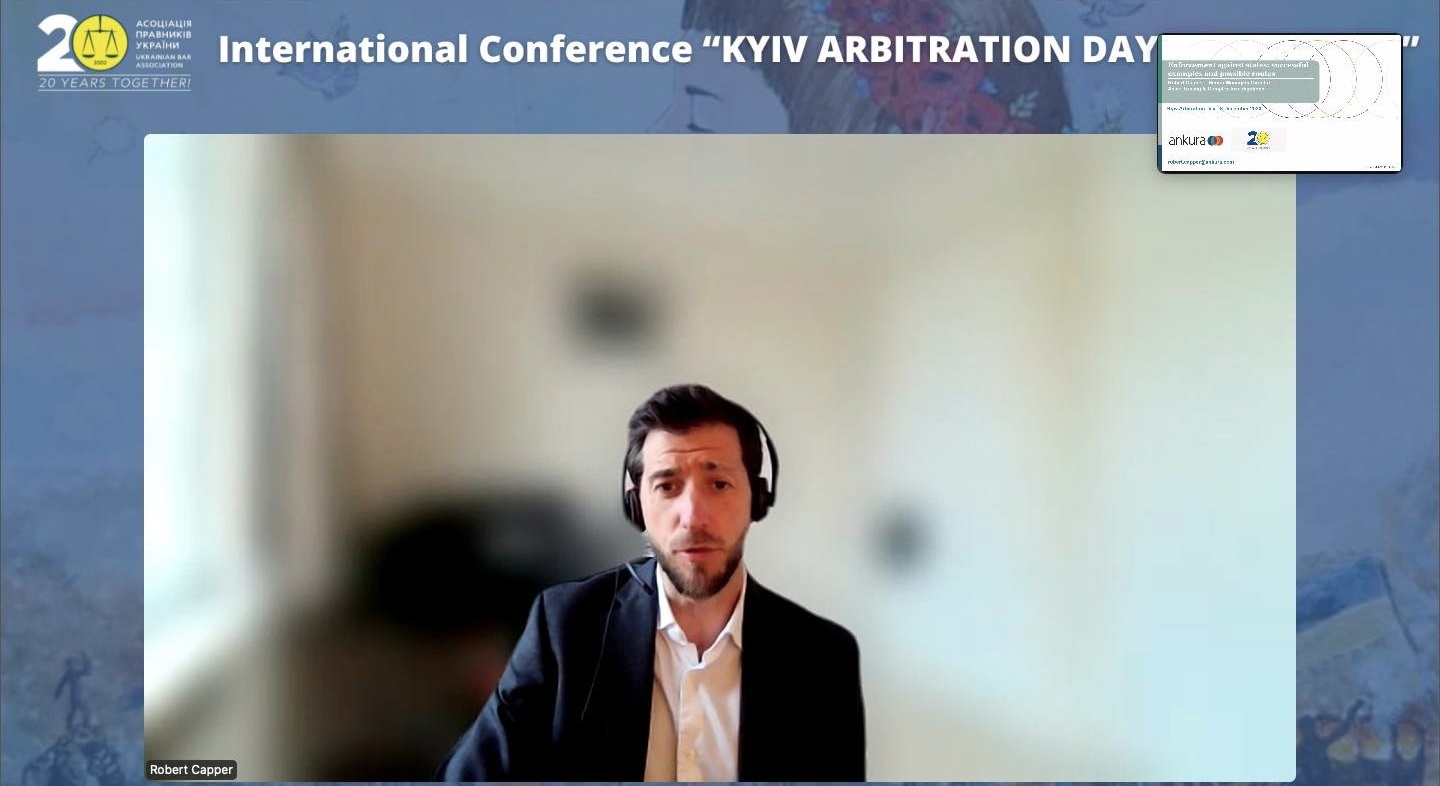
Robert Capper, Senior Managing Director at Ankura (UK), spoke about successful examples and possible ways for states to enforce court decisions (PRESENTATION). In particular, he noted that during 2022-2023, the number of court decisions not enforced by states, according to which payments were to be collected from them, almost doubled, as did the amount of unpaid compensation. Venezuela, Spain, Russia, Ukraine, and Argentina are at the top of the anti-rating of states that do not enforce such decisions.
Mr. Capper mentioned the following problems with the enforcement of court decisions:
- the role and impact of state immunity;
- applicable rules;
- political dynamics and motivation (internal and external);
- the impact of sanctions;
- potential leniency;
- the scope and diversity of assets.
According to the expert, there are several ways for states to successfully enforce court decisions:
- high level of asset tracing activities;
- successful asset recovery;
- integrated global economy;
- global politics and third parties;
- development of a coordinated strategy and expert assistance.
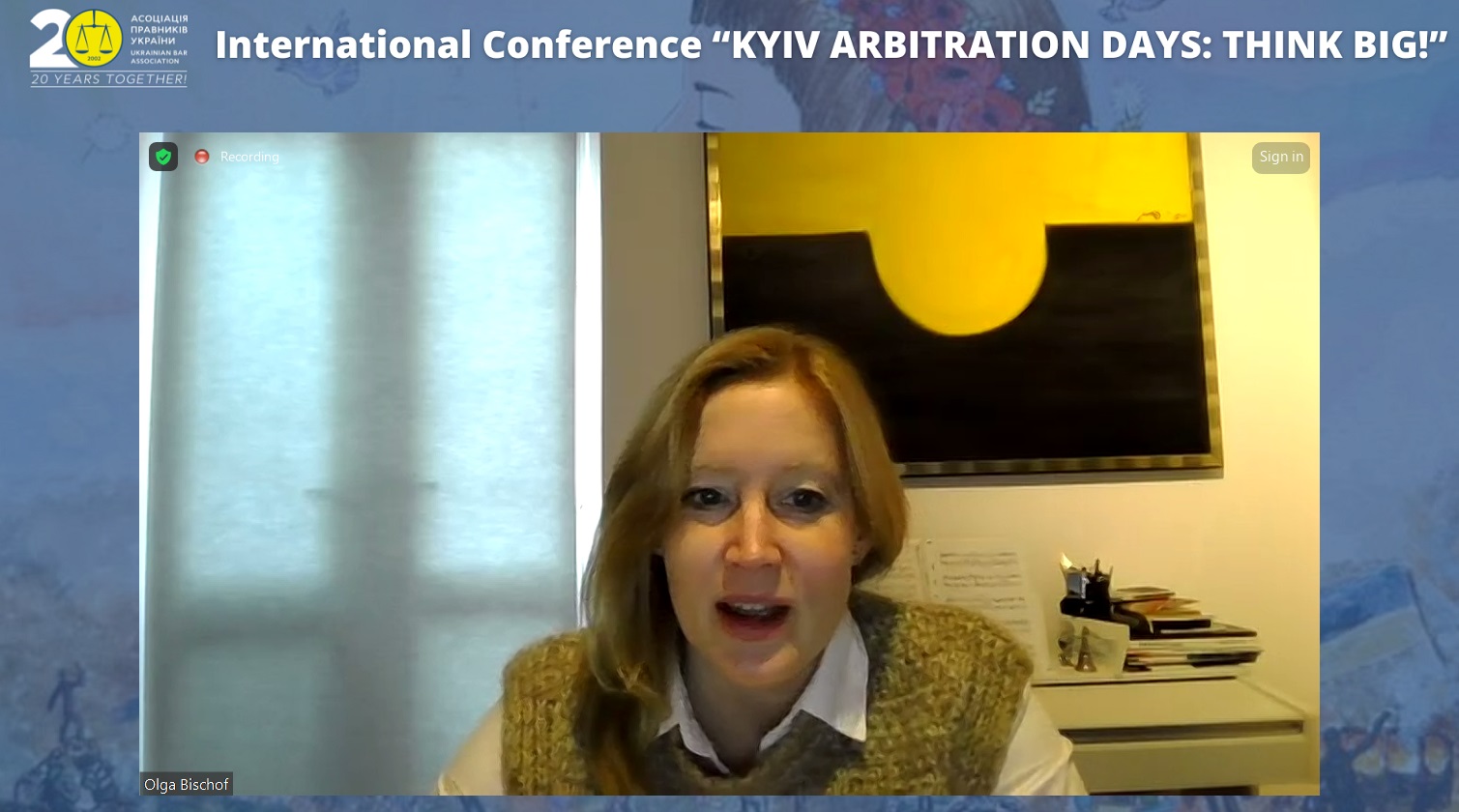
The second session of the conference was devoted to case management. The discussion was moderated by Olga Bischof, Partner at PCB Byrne (London, UK).
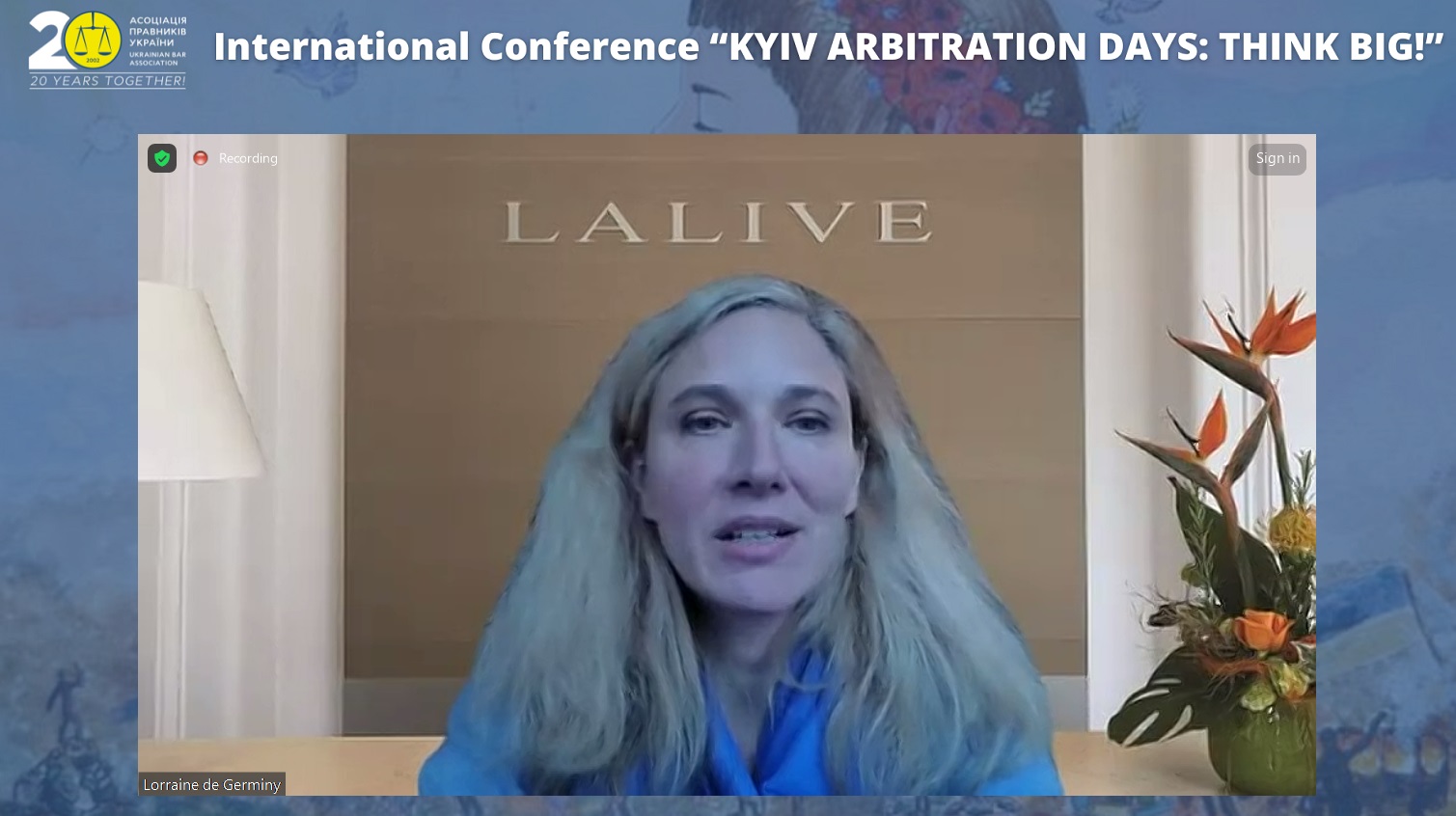
Lorraine de Germiny, Partner at Lalive (London, UK), gave some advice to investor-claimants and those representing their interests on how to build a team for investment arbitration and budgeting:
- Do not hesitate to seek the assistance of arbitration lawyers. It is very important to engage them at an early stage to avoid certain common mistakes.
- It is important to look for professionals who "live and breathe arbitration".
- Find out how long they have been specializing in arbitration, how many cases they have handled, whether they are really practitioners or mostly theorists. What is their experience with the country where you are filing a claim? Have they been involved in disputes in which the state was involved? Were they on the side of the state or not?
- After the general research, you need to make a short list of firms and hold a "competition" among them. Write to several firms and tell them about the dispute to see if they are willing to help. Ask them for their first thoughts on the case and how they would approach it.
- Also, ask the shortlisted firms how much they think it will cost, both in terms of their fees and expenses and the arbitrators' fees and expenses.
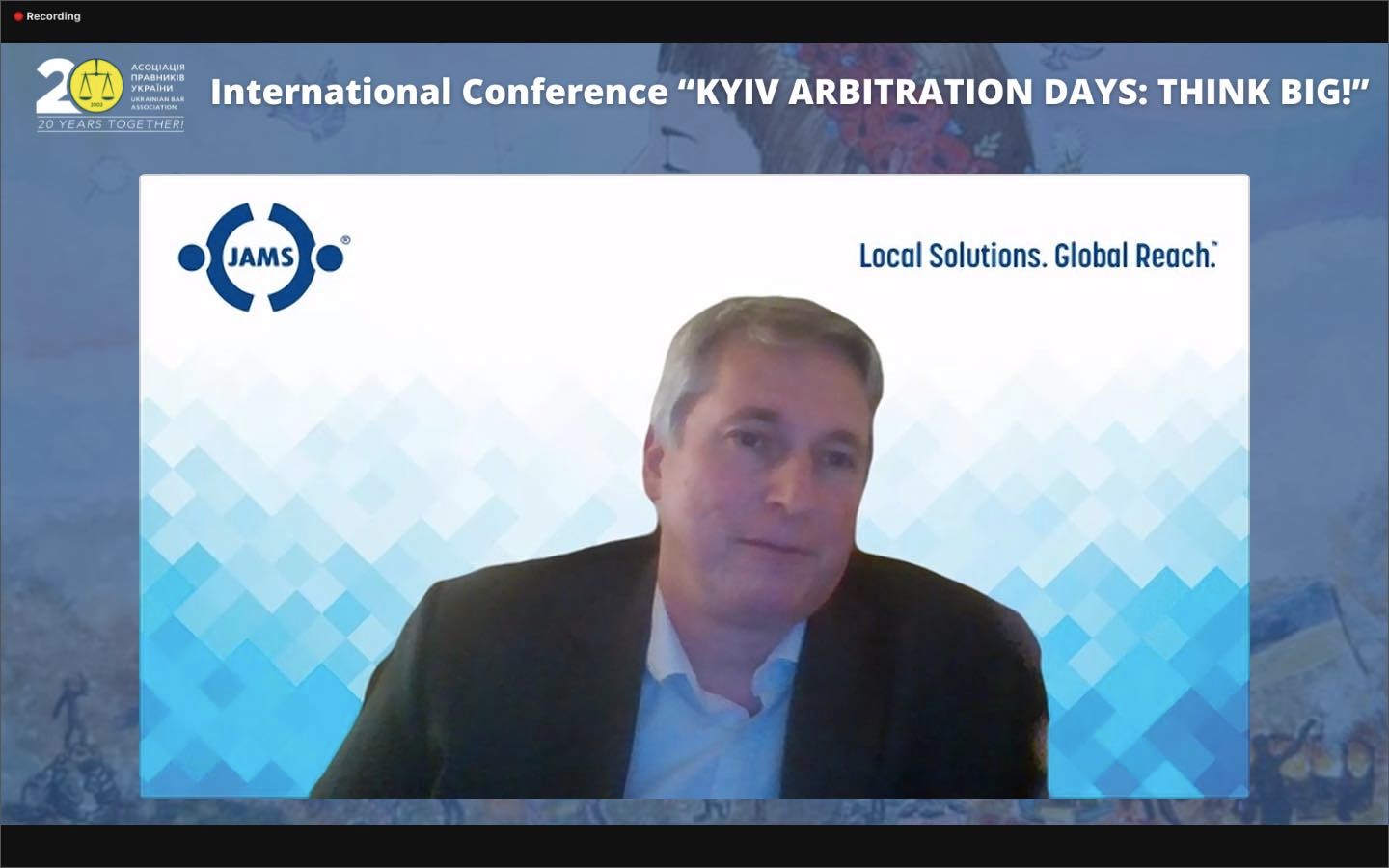
Tony Cole, Arbitrator at JAMS (Eccleshall, UK), reviewed the case management from the arbitrator's point of view, focusing on the so-called "soft" elements of procedural efficiency — i.e. how the arbitrator's approach to the case can affect the attorney and parties and their behavior, as well as the overall efficiency of the process.
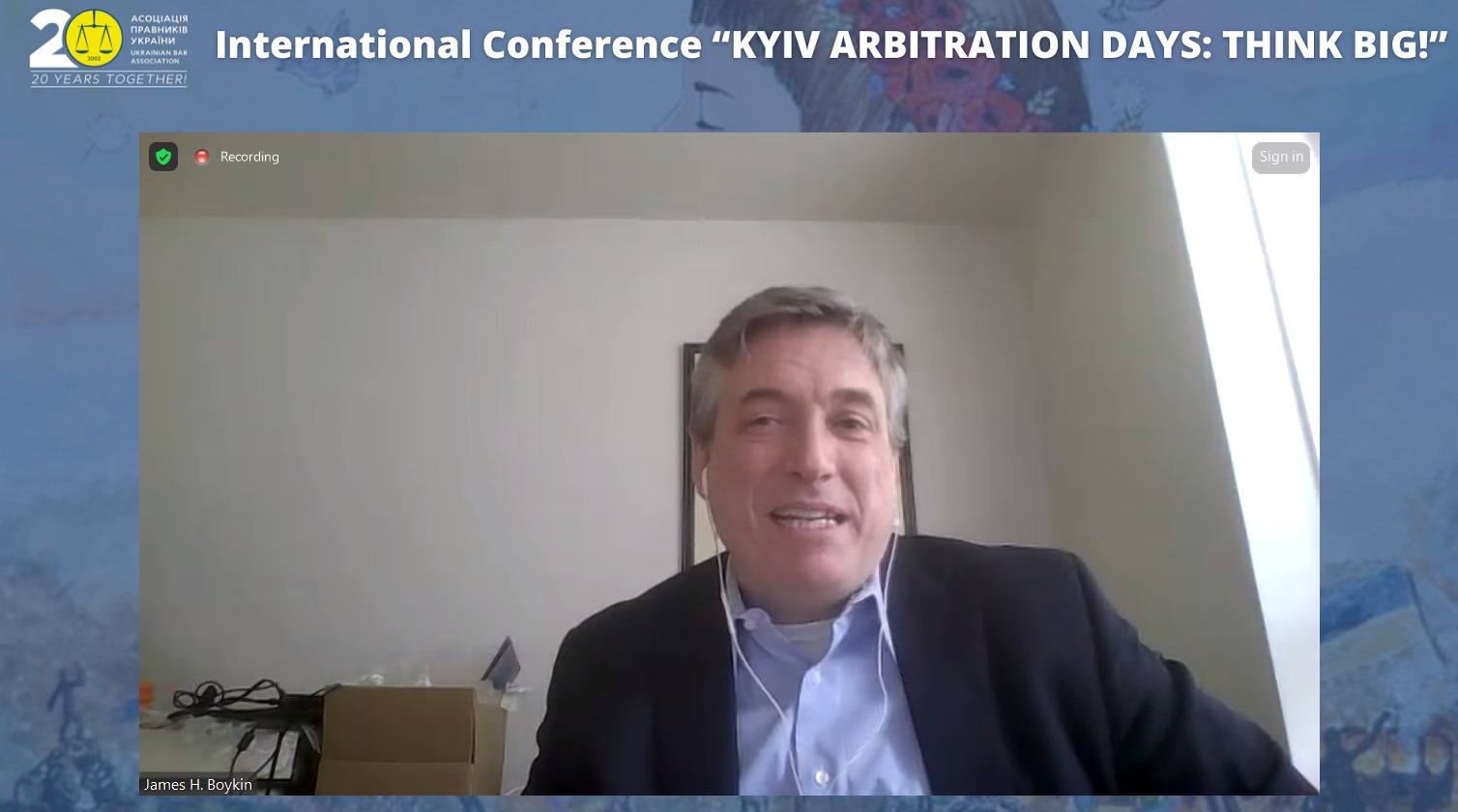
James Boykin, Partner at Hughes Hubbard & Reed LLP (Washington DC, USA), spoke about risk management for the legal team and the client. According to him, this process involves assessing financial, strategic, and security risks and implementing actions to prevent them.
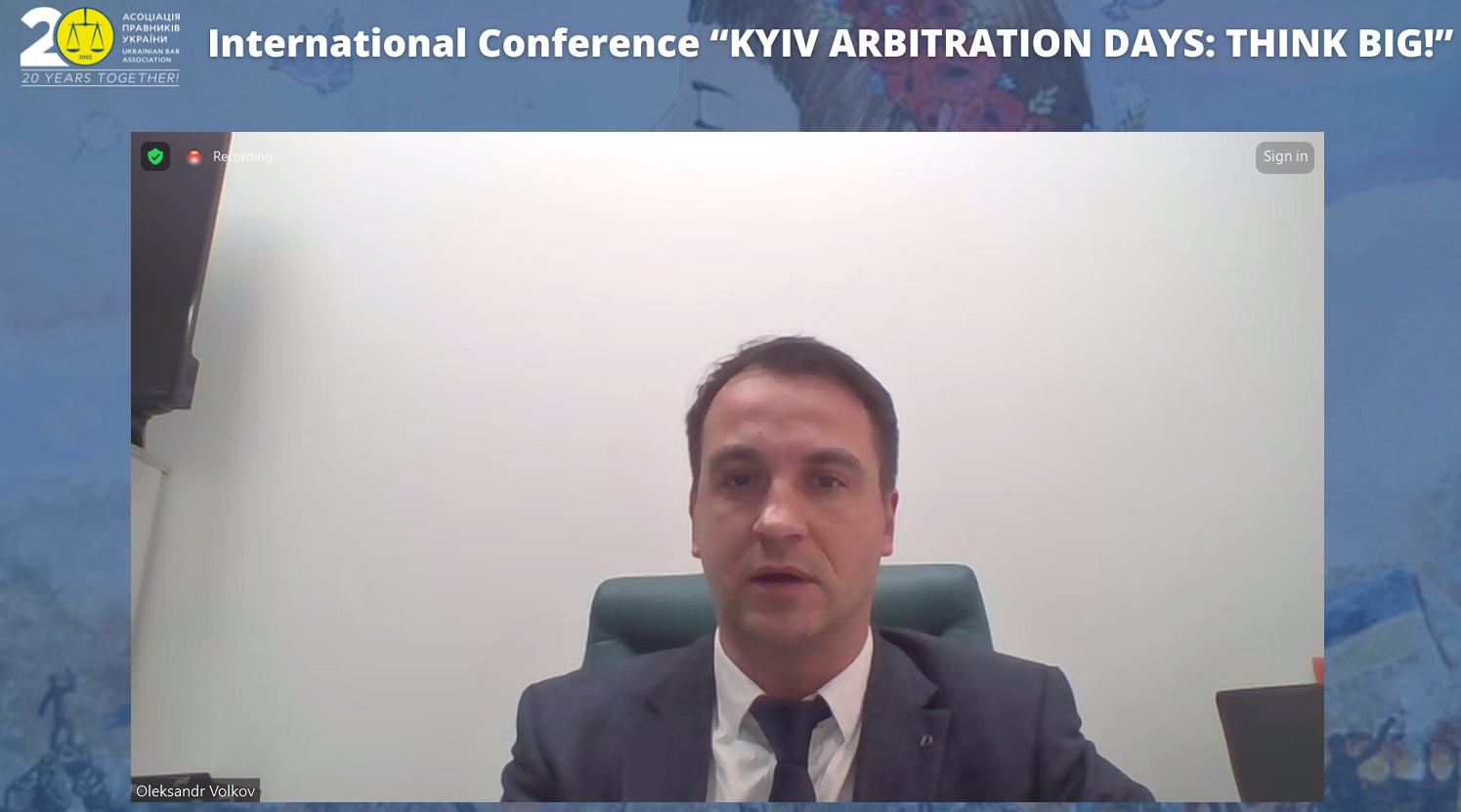
The experts of the third and final session of the conference discussed the topic of Ukraine's reconstruction. The discussion was moderated by Oleksandr Volkov, Counsel at Asters (Kyiv, Ukraine).
The following issues were proposed for discussion
- Current investment protection regime. Is it enough?
- Promoting investments into Ukraine: political and war risk insurance.
- Specialized tribunal for settling investment claims?
The speakers of the session were:
- Nikhil V. Gore, Partner at Covington & Burling LLP (Washington DC, USA)
- Clovis Trevino, Partner at Covington & Burling LLP (Washington DC, USA)
- Professor Cédric Dupont, Professor at Geneva Graduate Institute (Geneva, Switzerland)
Below are some of the points made by the panelists:
- Ukraine, like Russia, has entered into a number of bilateral investment treaties (BITs). Ukraine is also a party to the Energy Charter. Russia, on the other hand, has refused to become a party to this charter, although it has signed it.
- Many — if not all — of these treaties provide investors with protected access to international arbitration, as well as specific protections, such as protection against unlawful expropriation of investments without compensation, fair and equitable treatment (FET), and full protection and security (FPS).
- Although the Ukraine-Russia BIT does not contain any FET or FPS provisions, Russia has agreed to grant the most-favored-nation treatment in many BITs it has concluded, including the Ukraine-Russia agreement.
- This means that Ukrainian investors, as well as investors from other countries, can claim more favorable protection under investment treaties that Russia has concluded with third countries. And this is very important, because a number of these BITs provide protection in the context of an armed conflict, which is not specifically included in the Ukraine-Russia agreement.


